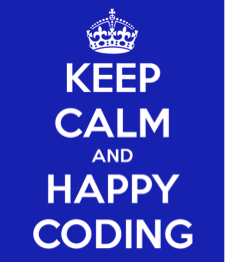Smitha Nagar
If someone were to ask me, “What is the best place to learn coding while having an insane amount of fun?”, I’d say one word: hackathons. Hackathons are an amazing source of knowledge – they usually focus on a competition, but they also have many different workshops on various topics taught by professionals. These workshops are pure gold for learning more about computer science. You can experiment with cool hardware and learn a new programming language, and also learn about business, public speaking, and all those other areas that help make you a well-rounded coder. They’re also a great way to meet new people to network and make those important connections that will come in handy later on in your career. The atmosphere is buzzing with energy (from the coffee and junk food), the people are friendly and excited (also from the coffee and junk food), and overall it’s such an enjoyable experience that you’ll find yourself wishing it would never end.
So what exactly happens at hackathons? Many people get images of someone endlessly staring at a computer screen, typing away, and that definitely does happen. However, it usually happens in groups – hackathons are designed to encourage collaboration. The best ideas are from teams, because two heads (or three, or more) really are better than one. Don’t worry if you don’t know anyone else who’s going or have nobody to team up with! You’ll make plenty of friends during this time, and your Facebook will explode with friend requests. Plus, many hackathons have specific sessions where individuals can meet and bond with other attendees to form groups.
The atmosphere is my favorite thing about these hackathons. Everyone is there for the same reasons as you: coding, learning, and having fun. People are energetic, friendly, and there are usually plenty of events happening on the side that add to the excitement, such as dance competitions, midnight snacks, and board games. Of course, the energy dies down a little after 1:00 or 2:00 am when people focus on their projects (and the procrastinators begin theirs), and the dancing is replaced with intellectual conversation and punctuated by the cries of those who have been debugging for four hours. But the satisfaction in seeing your team’s app work after long hours of coding is priceless. Even if it doesn’t work, knowing that you got so far creating something you wouldn’t have been able to do on your own is definitely worth it.
Team presentations are usually held in the morning of the last day of the hackathon. This is your chance to show the judges what you and your teammates have created and earn the chance to win some amazing prizes! What prizes you can win usually depends on the sponsors or partners of whoever is hosting the hackathon, and they can range from a $20 gift card to a raspberry pi to scholarships worth thousands of dollars! Far more valuable than any of these gifts, however, is the experience you get to take home with you. Some of these memories will last a lifetime.
So, you have your mind set on going to a hackathon! Great! Now you need to find and register for one. There are many open hackathons out there, but just remember to keep in mind the age group each one is geared towards. Some hackathons are geared towards young students (check out HSHacks!) while others are geared towards older programmers and are more adult-themed. Make sure you check that the hackathon you are about to sign up for is suited for you. Once you’ve signed up, remember to keep your ticket with you and bring whatever else is required on the day of registration. Once you’ve done that, you’re all set! Remember to stay safe, have fun, and code like you’ve never before!





